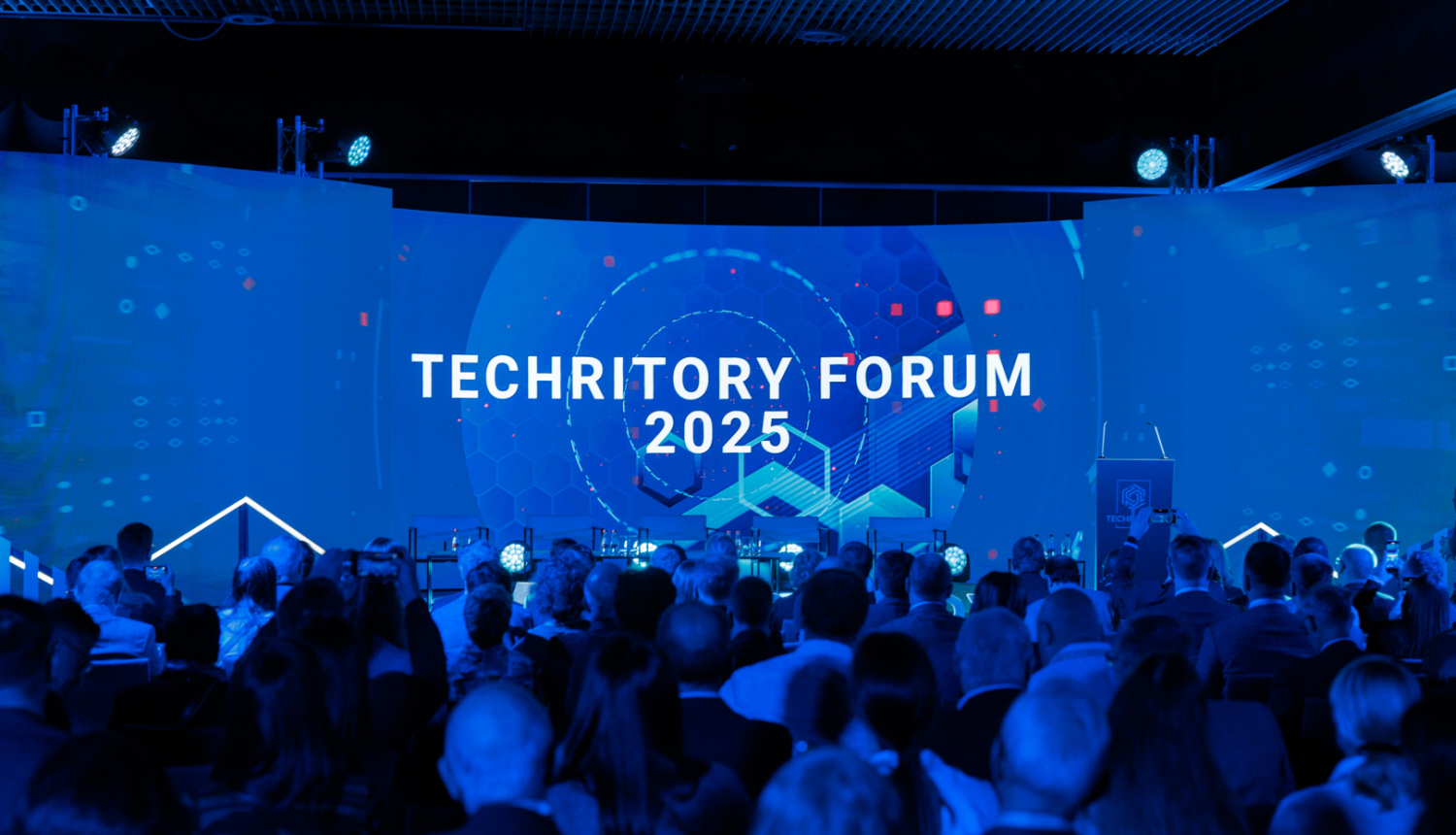In just a few years the world has gone from ChatGPT’s first public release to AI taking over every industry, workflow, and discussion. AI’s arrival has been nuclear, yet experts say we’ve only just begun to tap into the transformative potential of the technology, likening its impact to the arrival of the internet. The technology’s rapid evolution also brings with it a deluge of challenges.
A recent Techritory panel – powered by the Investment and Development Agency of Latvia (LIAA) – gathered a diverse lineup of experts to dive into the future of AI use cases, as well as reflect on the current trajectory of AI and how today’s challenges and values inform tomorrow’s (technical and political) solutions. The discussion explored the immediate regulatory hurdles, Europe’s competitive advantages, and the transformative potential of AI agents in both the physical and governmental spaces.
The panel was moderated by Marios Nicolaou (BD Director, p-NET), who works on integrating systems for the digitalization of vertical sectors, and featured:
- Nineta Polemi (Professor/CTO, UPRC/trustilio), whose main focus is the human factors and human element in AI, specifically addressing the AI Act requirements for human oversight and the certification of AI systems.
- Ali Hantal (Founder & CEO, XR Masters), whose company specializes in spatial computing, XR, and AI integration to develop platforms for multi-user, geo-spatially anchored, and persistent experiences that connect the physical and virtual worlds.
- Tiago C. Peixoto (Senior Digital Specialist, The World Bank Group), who serves as the Bank's focal point for AI on Europe and the Western Balkans and is a key author on the World Bank's next major publication concerning the transformative effects of AI on global development.
- Arturs Vasilevskis (CEO and Chairman of the Board, Tilde), who leads a language technology company with the mission that each language deserves the same respect to be represented in the digital and AI environment.
The current reality: Trust, potential, and institutional change
The conversation first centered on the immediate state of AI adoption. Nineta Polemi highlighted the opportunity presented by the AI Act, which will put barriers into non-trustworthy AI systems that abuse human values. She stressed that while the Act is an opportunity, its successful implementation faces a significant technical challenge: the requirement for human oversight in every decision-making process and the need for certification of AI systems, a concern that demands investment in human capabilities beyond just technical skills.
Ali Hantal noted the incredible convergence of AI, XR (Extended Reality), spatial computing, and Big Data. However, he pointed out a major gap: current AI systems are disconnected from their environments – they are not geo-spatially or contextually aware. He argued that the next leap will be AI systems that know exactly where they are, shifting the interface from screen-based to a front-line interface for all digital experiences.
Looking at the public sector, Tiago C. Peixoto introduced the concept of the “agentic state”, where AI agents can transform governments by navigating the complexity of online bureaucracy and acting as a “personal fixer” for citizens. He emphasized that this transition is less a technological challenge and more one of institutional change, starting with government procurement, warning that failure to adapt will lead to a growing gap and increasing distrust in public services.
Arturs Vasilevskis framed the global landscape as a competitive fight between the US and China for AI dominance. He argued that Europe's key competitive advantage is its multilinguality, and the focus should be on building more focused, trustworthy European AI models – such as the Tilde open model – that share values regarding data privacy and security.
Looking ahead: Policy, interoperability, and unforeseen opportunities
The panelists were optimistic about a future where AI systems are human-centric, respectful of people, and cyber-security certified. Hantal described a world in three to five years where spatially aware AI agents act as the “greatest support” to an individual, offering personalized recommendations based on their location and interests. He forewarned that this great potential comes with an existential risk due to AI's accelerating power, stressing the need for interoperability to prevent global systems from being censored or locked into single corporations.
Peixoto outlined two critical policy debates for the near future: the need for context portability to prevent commercial lock-in and the need to regulate the emerging fusion of physical and virtual space, specifically concerning authority and taxation over virtual advertisements. Vasilevskis called for sustained investment in AI infrastructure – like AI factories and gigafactories – to ensure Europe can develop its own advanced platforms and practical applications, making the technology accessible for both startups and mature companies.
Regarding the impact on the workforce, Polemi stated that AI will not replace humans but will necessitate a shift in skills and an acceleration of education for young people to adapt to new AI-driven jobs. Peixoto concluded that the greatest benefits will come not from automating existing processes, but from the development of entirely new services that no one has yet thought of, much like Uber was for the internet and GPS.
Keeping up with AI
The future of AI, while filled with potential risks in data integrity and control, is set to fundamentally reshape daily life, government, and industry on a scale unseen since the early days of the internet itself. Given how quickly the technology is evolving, future-oriented discussions like these are critical for ensuring responsible and equitable AI.
You can also watch a recording of the panel here.
The event was financed with the support of the European Union’s Recovery and Resilience Facility – NextGenerationEU.
The views and opinions expressed are solely those of the author(s) and do not necessarily reflect the views of the European Union or the European Commission. Neither the European Union nor the European Commission can be held responsible for them.




